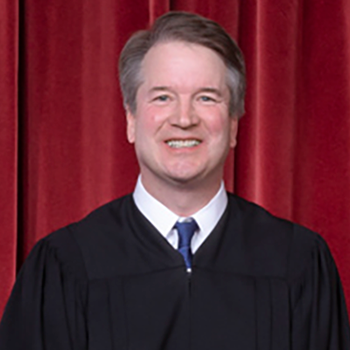Kavanaugh keeps observers guessing in arguments on protections for LGBTQ workers

U.S. Supreme Court Justice Brett M. Kavanaugh.
U.S. Supreme Court Justice Brett M. Kavanaugh provided little clue to his thinking on Title VII protections for LGBTQ people during U.S. Supreme Court oral arguments Tuesday, while Justice Neil M. Gorsuch asked some questions that appeared to favor both sides.
Kavanaugh asked just one question during the two hours of oral arguments. Gorsuch, on the other hand, commented that “the textual evidence is very close” on the issue.
The National Law Journal, BuzzFeed News, the New York Times, the Washington Post, SCOTUSblog and USA Today have coverage, while How Appealing links to additional stories.
The Supreme Court is considering the reach of Title VII of the Civil Rights Act, which prohibits workplace bias “because of … sex.” Two cases are consolidated for the court to consider whether workplace discrimination because of sexual orientation is banned by the law. A third considers whether discrimination based on gender identity is banned.
Kavanaugh posed his question to Jeffrey Harris, a lawyer arguing for employers in the sexual orientation cases. He asked whether Harris was drawing a distinction between the “literal” and “ordinary” meaning of “because of sex” in cases of sex-based discrimination. Harris said he didn’t see a difference and switched to another topic.
Also questioning Harris, Gorsuch said Title VII didn’t say sex had to be a primary reason for discrimination for the law to apply. Isn’t it enough for an employee’s sex to be part of the reason for discrimination that triggers protections? he asked.
At another point, Gorsuch asked about whether the court should be concerned about “massive social upheaval” that would be caused by a decision for the plaintiffs. He questioned whether a decision in a close case was better left to Congress. “It’s a question of judicial modesty,” he said.
The consolidated cases on protections for sexual orientation are Bostock v. Clayton County, Georgia, and Altitude Express v. Zarda. The case on protections for gender identity is R.G. & G.R. Harris Funeral Homes Inc. v. EEOC.
Related article:
ABAJournal.com: “ABA amicus brief supports LGBTQ employees in Title VII discrimination cases”
Story updated Oct. 10 at 4:04 p.m. to make wording changes in references to LGBTQ people.



